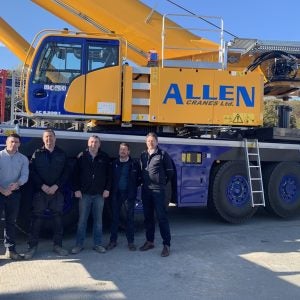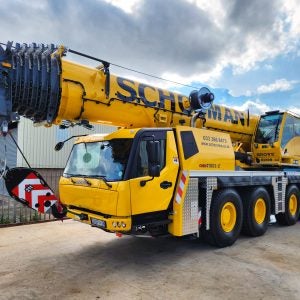Our publisher wisely took the decision to cancel all international travel in early March. That meant I missed ConExpo, and the face-to-face interviews I normally conduct at big shows. But I was glad not to be stressing about handshakes, or whether I would be able to fly home.
In Britain, and the USA, private business has often lead government in protecting workers and customers. But government still needs to act. For millions of people here in the UK—and I'd guess hundreds of millions around the world— whether they should work, and how they will feed their families if they don't, is a pressing question. It's not a question they should have to answer on their own.
It's important to really grasp the scale of the risk. Initial reports of death rates suggested an unrestrained Coronavirus could kill millions; more recently, US expert Dr Anthony Fauci suggested the country might see 200,000 deaths under current policies; and a near total lockdown, like that in the UK, could, local experts say, keep deaths down to tens of thousands.
Intense measures to stop spread are vital.
Very many workers in construction are self-employed or paid hourly. They shouldn't be expected to weigh the risk of losing their home against that of their neighbour or colleague losing their parents. Contracting and sub-contracting companies, like crane rental companies, similarly shouldn't be expected to weigh the viability of their business and their ability to pay wages against society's broader needs.
Facing the risk of hundreds of thousands, or millions, of deaths, every government should act urgently, with the same sort of measures seen at a time of war. That means directing business to where it is needed, stopping activities that increase risk, and ensuring everyone has food, a safe place to live, and a healthcare system that has all it needs.
I've seen some trade associations appearing to argue that construction is 'essential'. That may be the case if you are building a field hospital. It's not if you are building a new ward due to open in three years, let alone a luxury apartment. Instead they should push government to pay for work that is truly needed, to ban risky work that isn't essential, and to support businesses and workers through a long economic depression.
On the crane manufacturing side, it's hard to argue that delivering a new crane now, rather than in a few weeks or months, is essential. But what about parts, whether held by the manufacturer, or elsewhere in the supply chain? If a crane placing prefab hospital modules can't work, a replacement crane or repair part is surely essential. Maintaining that level of service, without unnecessary risk, will again need government action.
For the next few weeks or months, stopping the virus and caring for the sick are the only true essentials. Everything else can wait.
Will North, group editor
will.north@cranestodaymagazine.com






